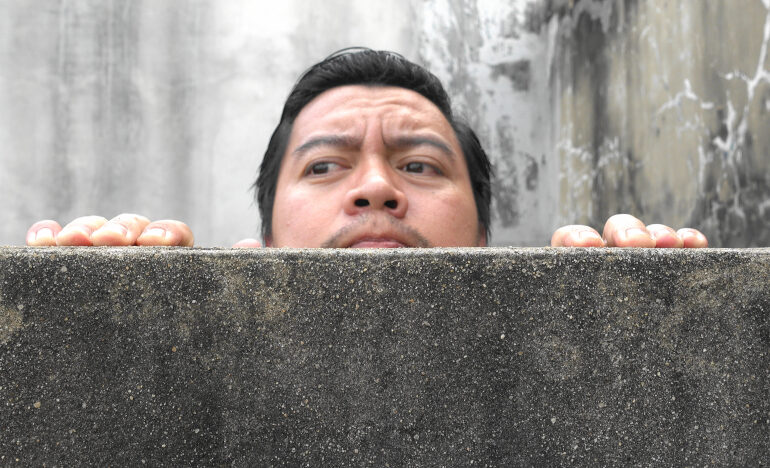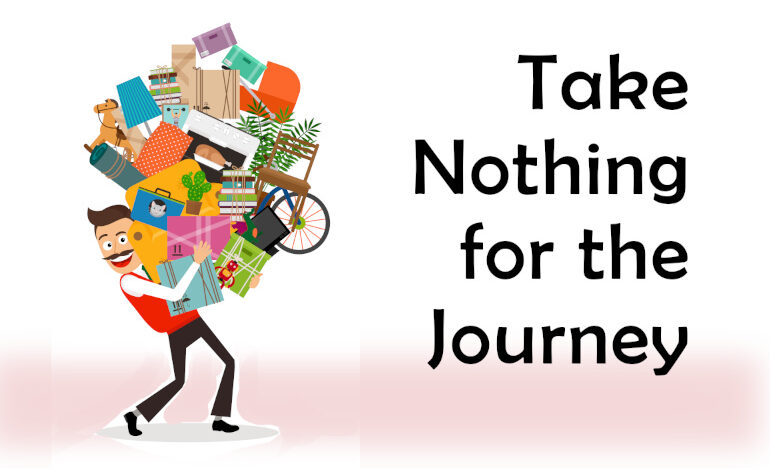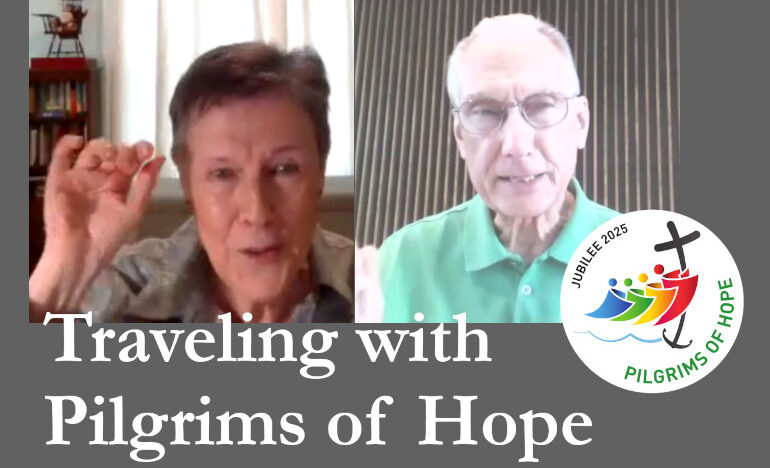Take a Risk or Play it Safe? A Conundrum

An Assembling God’s Puzzle video
By Fr. Garry Richmeier
We all know what it’s like to be hurt. Sometimes we get hurt physically, like when we are in an accident, or when we make one wrong move while chopping vegetables. We also know what it’s like being hurt by others, either intentionally or unintentionally. Like when someone betrays us in some way, or when we feel abandoned because a loved one leaves us when they die or moves away or stops calling us for some reason.
If we are alive, we will experience hurt, pain, and suffering. In fact, the first of the four noble truths of Buddhism is “Suffering exists.” Hurt is a very powerful piece of the puzzle of our lives, and if given the chance, it can rule our lives. So, it is crucial to figure out how to deal with hurt effectively so we avoid being controlled by it.
Avoiding hurt and pain is a survival instinct. By touching a hot stove for the first time, the pain teaches a young child not to do that again. Much of our learning to survive in life is through trial and error. It is the “error” that often causes the pain and convinces us to do something different to survive.
Given that there is always a possibility of getting hurt in life, the dilemma for us human beings is deciding how, when, where, and how much we are willing to risk being hurt. Or if we are willing to risk at all. A phobia is a diagnosis given to people with irrational fears of being hurt. Like a person with a fear of flying, despite the fact that statistics show driving a car is more of a risk than flying. But generally speaking, we are not afraid of things or situations for no reason. We know that the paring knife can slice our finger as we cut up vegetables, so there’s reason to be somewhat wary while handling a knife. We usually get used to taking common sense precautions when doing risky things.
But what happens when a person experiences a hurt so severe that they believe that experiencing it again will destroy them in some way? If they believe their physical, emotional, relational, or psychological survival is at stake, they may go to extremes to avoid the threat. They may succeed in avoiding getting hurt again, but in the process, they often give up things necessary for health and happiness.
I see a particular example of this quite often in counseling. Someone tells me that they are not happy, and generally not satisfied with life. It becomes clear that they have few friends and no close, supportive relationships. As the discussion moves toward the possibility of developing greater connections with others, the person describes the hurt they experienced when someone they trusted betrayed them. It might include an experience of an intimate partner cheating on them, or a family member abusing them in some way when they were young.
They say they can’t risk getting close to anyone else because they can’t survive the possible hurt of another betrayal. They have traded life-giving relationships for emotional safety, which brings its own kind of suffering.
When we believe the threat is overwhelming, we build walls around ourselves, much like a castle under siege. The bigger the threat (the greater the past hurt), the higher and thicker we build the walls.
We survive, but it’s hard to thrive in that situation because we also shut out what brings us life.
I often use that image to help people consider risking a little bit more. I’ll invite them to peek over the “walls” a little to see if the threat is still there. Usually the situation has changed since they were hurt in the past, or they have changed in some way. Maybe they can realize they’ve grown in wisdom and experience and have more resources to protect themselves now and don’t need the walls as much.
Maybe the weapons that were used to hurt them in the past aren’t as powerful now for some reason. I suggest that maybe thinner, shorter walls may now be enough protection and they don’t have to be totally isolated. Then there is the possibility of getting better at evaluating who and what is actually a threat so that they can more safely place their trust in people that are actually trustworthy.
Finally, and maybe most importantly, a person needs to know that they will survive a negative outcome before they risk something. We human beings are resilient, and relatively few things will destroy us.
So when counseling a person in the above situation, I will tell them that their very presence in my office is proof of their ability to survive every negative thing that has happened to them. I often ask them what strengths or virtues or abilities have helped them survive, and we might even write down a list of those things that they can take with them. Then I’ll suggest that those strengths can be expanded and multiplied in various ways so the person can rely on those things for protection rather than building isolating castle walls.
It is a survival instinct for us human beings to protect ourselves. But to keep our fears of hurt from controlling us, we need to be realistic about what is actually threatening, and to maintain a good sense of our own strengths, resilience, and ability to survive. Then we are able to take the risks necessary to find the life-giving things in around us.
All of the videos in this series can be found here: Assembly God’s Puzzle.
Never miss an article published on the Renewal Center website: Sign up to receive our newsletters.
[Fr. Garry Richmeier, a Precious Blood priest and spiritual director, holds a Master’s of Divinity Degree from St John’s University in Collegeville, Minnesota, and a Master’s of Counseling Psychology degree from the University of Missouri-Kansas City. He is a licensed professional counselor and a licensed marriage and family therapist.]
ID 115106214 | Looking Over Wall © Phawat Khommai | Dreamstime.com
We’d Like to Hear from You!
We’d like to know what you think about this article. Send us a comment using the form below. Do you have a suggestion? Is there something you want to learn more about? Send us a note.
Related

Take Nothing for the Journey
An Assembling God’s Puzzle video
By Fr. Garry Richmeier, C.PP.S.
Jesus’ teaching about what to take on a journey — nothing — is actually good advice for building trusting relationships. Don’t bring your “stuff” into the relationship; listen deeply and respec their views and situation, understand their struggles.

Pilgrims of Hope, Episode 6: Walking with Cancer Survivors
Hosted by Fr. Ron Will, C.PP.S.
We are talking with people who find hope amid difficult circumstances or bring hope to others. In this episode, Kathy Keary talks about how centering prayer, journaling and other spiritual practices helped her cope with two life threatening health issues.
Categories
Assembling God's Puzzle Coffee with Padre Cooking & Spirituality Encounters of the 4th Kind Family Matters Reflections on the Eucharsitic Prayers Spiritual Resources Taize Prayers The Contemplative Life Traveling with Pilgrims of Hope Uncategorized Videos Week of Prayer for Uhristian Unity When you need a little help
